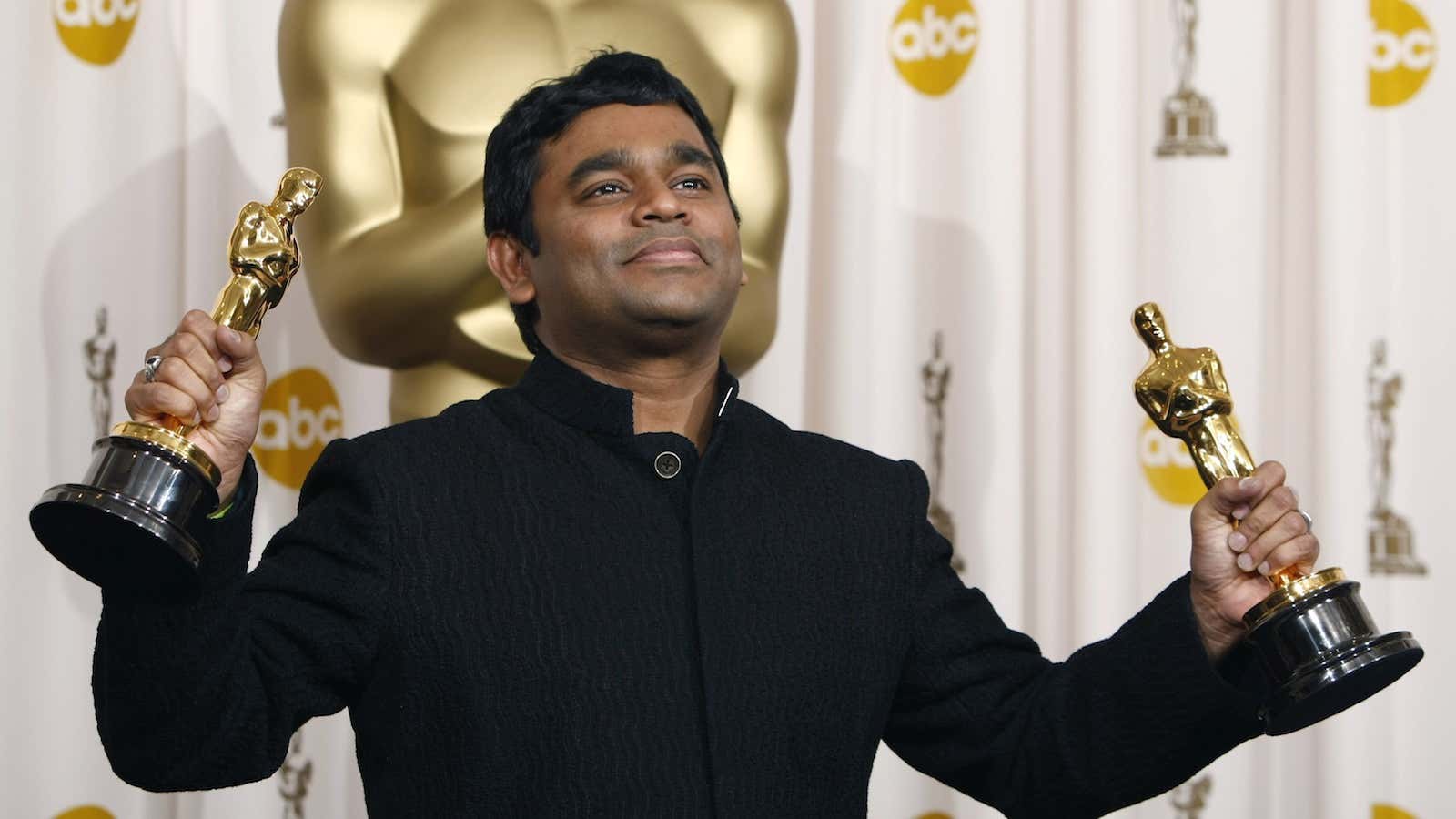When AS Dileep Kumar decided to shed the faith he was born into and adopt a new one, the reasons were several. His father’s untimely death had put several financial pressures on the family, which included four children. His spiritual-minded mother had met, and gained immense succour, from a Sufi saint, peer Karimullah Shah Qadri. And he had been grappling with minor and major identity issues: he didn’t like the name he was born with, he was looking for direction and purpose, and he wanted to get a handle on his professional future. That man is today known as Allahrakha Rahman, one of India’s foremost composers. He discusses his decision to convert and the impact it had on him in these edited excerpts from AR Rahman: The Spirit of Music by Nasreen Munni Kabir.
How has Sufism affected your attitude to life?
It has taught me that just as the rain and the sun do not differentiate between people, neither should we. Only when you experience friendship across cultures, you understand there are many good people in all communities…
Did your belief in spirituality help when you and your family were facing hard times?
Yes, absolutely. My mother was a practising Hindu… My mother had always been spiritually inclined. We had Hindu religious images on the walls of the Habibullah Road house where we grew up. There was also an image of Mother Mary holding Jesus in her arms and a photograph of the sacred sites of Mecca and Medina.
In 1986, ten years after my father died, we happened to meet Qadri Saaheb again. The peer was unwell and my mother looked after him. He regarded her as a daughter. There was a strong connection between us. I was nineteen at the time and working as a session musician and composing jingles.
Did the peer ask you to embrace Islam?
No, he didn’t. Nobody is forced to convert to the path of Sufism. You only follow if it comes from your heart. A year after we met Qadri Saaheb in 1987, we moved from Habibullah Road to Kodambakkam to the house where we still live. When we moved, I was reminded of what Jesus Christ, peace be upon him, once said: “I wish that you were cold and hot. So because you are lukewarm, and neither hot nor cold, I will spit you out of my mouth.”
What I understood by his words was that it is better to choose one path. The Sufi path spiritually lifted both my mother and me, and we felt it was the best path for us, so we embraced Sufi Islam.
Were you conscious of the fact that changing your faith might affect your relations with people?
My family had started working by then and we weren’t dependant on anyone. No one around us really cared – we were musicians and that allowed us greater social freedom…
The important thing for me is that I learned about equality and the oneness of god. Whether you are a winner or loser, king or slave, short or tall, rich or poor, sinner or saint, ugly or beautiful – regardless of what colour you are, god showers unlimited love and mercy on us if we choose to receive it. It is because of our inability, our blindness in seeing the unknown that we lose faith.
On the net there are many versions of how you came to be called AR Rahman. What is the real story?
The truth is I never liked my name…. No disrespect to the great actor Dilip Kumar! But somehow my name didn’t match the image I had of myself.
Sometime before we started on our journey on the path of Sufism, we went to an astrologer to show him my younger sister’s horoscope because my mother wanted to get her married. This was around the same time when I was keen to change my name and have a new identity. The astrologer looked at me and said, “This chap is very interesting.”
He suggested the names: “Abdul Rahman” and “Abdul Rahim” and said that either name would be good for me. I instantly loved the name “Rahman.” It was a Hindu astrologer who gave me my Muslim name.
Then my mother had this intuition that I should add “Allahrakha” [protected by god], and I became AR Rahman.
Excerpted from AR Rahman: The Spirit of Music, Om Books International.
This post first appeared on Scroll.in
